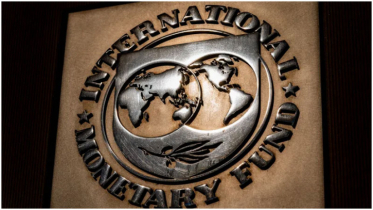Will French elections spark the next euro crisis?

The various campaign promises being made by the far right and far left ahead of France’s snap elections on June 30 and July 7 all have something in common: they will all be very, very expensive to carry out.
Whether they call for lowering the retirement age back to 60, raising the minimum wage or granting blanket tax exemptions to everyone under 30, each campaign promise is another potential multi-billion-euro threat to France’s already empty coffers.
But where will the money come from? Neither the far right nor the far left has an answer.
Friedrich Heinemann, a public finance expert at the German-based Leibniz Center for European Economic Research (ZEW), says the promises being made by France’s populists mirror a broader “radicalization of economic policy.”
France’s rotten state finances
Europe’s second-largest economy is already groaning under a mountain of debt equaling roughly 110% of GDP. Last year, France’s trade deficit was running at about 5.5% of the country’s overall economic output.
Both mean trouble when measured according to the EU’s Maastricht Treaty, which only allows for a 3% trade deficit and a maximum sovereign debt of 60% of GDP.
Things could get worse. It is estimated that the campaign promises being made by the far right and far left could add as much as $21.4 billion annually in new spending to the budget.
Some experts say that this is a conservative estimate, and that the plans could be costlier still.
The situation in Italy looks even worse than it does in France. In 2023, Rome ran a deficit of 7.4% and debt was a whopping 140% of GDP.
But unlike French President Emmanuel Macron, conservative Italian Prime Minister Giorgia Meloni’s job is safe.
No protections against populist economic policy
The strict parameters of the Maastricht criteria were eased during the Covid-19 epidemic and have remained more flexible since. The eurozone’s latest framework for steering economic policy only recently went into effect, on April 30, 2024.
There are still limits for debt and deficit, but the new framework gives nations far more wiggle room regarding how and when they get their financial house in order.
Still, Codogno fears that may not be enough for some countries. “France could become the first country to intentionally flout the new fiscal framework agreements,” he said.
The blackmail potential posed by highly indebted states is real. To date, debt and deficit transgressions by individual states have suffered little consequence from the European Commission or the European Central Bank (ECB).
Who’s controlling the controllers?
Heinemannis critical of the fact that the European Commission has also been far too lenient on debtor nations in the past.
He feels the key role that the European Commission plays in enforcing debt rules is one of the central design flaws of the entire eurozone system.
As a de-facto government, the EU is ill-equipped to be “a neutral arbiter when it comes to member states taking on debt,” he said.
“Because it is always in a situation in which it has to enter negotiations with a member state in order to arrive at a compromise.”
Heinemann would like to see more oversight from the European Fiscal Board (EFB), which evaluates whether the European Commission accurately assesses member states’ financial situations and whether it is correctly applying Stability and Growth Pact measures.
Regrettably, says Heinemann, the EFB has absolutely no political say.
.png)




